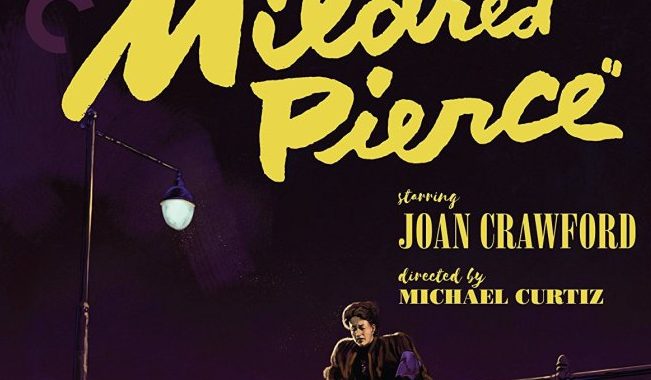
Disc Reviews
Mildred Pierce (1945) Blu-ray Review

Mommie Dearest. Joan Crawford arguably made her best film mid-career with Mildred Pierce (1945). Her career spanned some 45 years. Mildred Pierce is about a hard working single mother who struggles to bring up two daughters but has trouble with one of her daughters who is incredibly high maintenance causing a mother/daughter conflict that ends in murder. The mother/daughter issue was also an element affecting Crawford’s own dysfunctional personal life that was exposed in the sensational autobiography ‘Mommie Dearest’ written by Crawford’s adopted daughter Christine about her and her brother’s upbringing (it was made into a film in 1982 starring Faye Dunaway as the diva actress) and published after Crawford’s death.
In many ways Mildred Pierce is a cross-over film of film noir and women’s melodrama. This cross genre has not sat comfortably for many critics and film historians but it has, never the less, grown in stature over the past 30 years or so. The film contains all the conventions of both genres from film noir type murder and set-up, the moody lit shots so typical of the genre as well as having a femme-fatale. The last convention is also evident in women’s melodramas with the central characters being from a women’s perspective and generally weak male characters. It opens in typical film noir style with a flashback of a man being shot one night in his beach side home by an unknown assailant. In the next shot we see a woman wearing a mink coat in great distress entering a bar where she is met by a man she knows and goes back to the house where the body of the dead man lies on the floor. She runs out and along the pier and contemplates suicide when she is prevented from carrying it out by a police officer. The police arrive at the house, find the body and take the man and the woman to the police station. The woman is Mildred Pierce (Crawford), the wife of the dead man. The police say they have a suspect, the woman’s ex-husband (Bruce Bennett) but she refuses to believe that he is the murderer. And so she recounts and narrates in flashback what could have led to the murder. She tells how a hardworking housewife with two daughters divorces her husband. She and her husband argue over how she panders to the spoilt elder daughter, Veda (Ann Blyth). This argument eventually lead to him walking out of the home. The seedy family friend Wally (Jack Carson) tries to move in on her but she rebuffs him. She takes on a job as a waitress to earn money, which Veda is ashamed of. When the youngest daughter dies of pneumonia Mildred throws herself into her work after she starts her own restaurant business which she turns into a success. Mildred uses her wealth to spoil Veda even further and now that she is becoming a woman she also flirts with Mildred’s new man, a charming playboy (Zachary Scott) whom she eventually marries to make it clear to Veda that he is her man. It soon becomes clear to Mildred and her ex-husband that Veda is becoming difficult to control.
Mildred Pierce was directed by Michael Curtiz, a director not given the credit due him to the different types of films that he would make. He was by 1945 still enjoying the success that Casablanca (1942) gave him, but he had also been responsible for several classic A list historical adventure films with Errol Flynn, a handful of gangster films as well as many a classic including going on to direct White Christmas (1955). Crawford had not been the first choice for the director but she more than measured up to the role having been labelled a few years previously as “box-office poison”. She also seems to have embraced the dysfunction of her own upbringing, her personal complex family life and neuroses to the role (she even fought Curtiz, and seemed to win, with the big shoulder pads on her outfits). The source novel for the film had been a novel by famed (and underrated pulp writer) James M. Cain. Cain had also written the novels ‘The Postman Always Rings Twice’ and ‘Double Indemnity’ which also become classic film noirs. One extra on the disc, a 1969 interview with Cain has him talk about ‘the youth of today’ and how violent American society – violent human behaviour being one of the core elements of his books.
Another extra on the disc is a discussion between Molly Haskell and Robert Polito on the film and going into many of the themes of the film including class consciousness and interestingly the details of the film that covers the cost of consumerism and mortgages, aspects of life not often covered in old Hollywood films. Released by Criterion Collection there are plentiful extras while the picture looks pristine thanks to the 4K restoration. Other extras include a David Frost Show interview with Crawford filmed from 1970 (while she was making her embarrasingly dreadful final film, Trog) and a feature length documentary on Crawford’s career. The reputation of the film has grown and the packaging of this film and the restoration supports this.
Chris Hick



